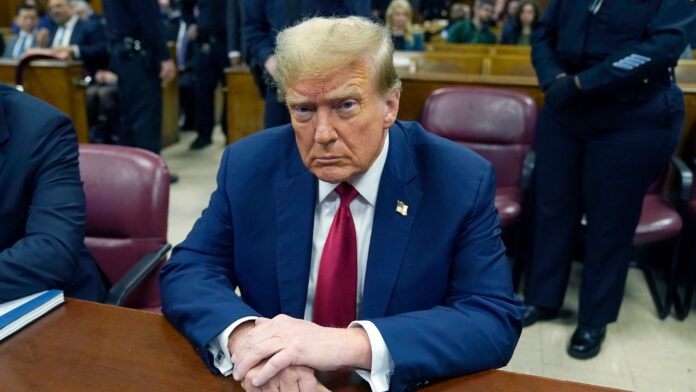A New York appeals court judge has denied US President-elect Donald Trump’s request to delay his sentencing in the hush money case scheduled for Friday. Associate Justice Ellen Gesmer rejected the request during a brief hearing on Tuesday afternoon, according to a CNN report.
Trump had sought to postpone the proceedings, including his sentencing, while appealing his conviction after Judge Juan Merchan denied his earlier request to halt the sentencing process.
Todd Blanche, Trump’s attorney and the incoming Deputy Attorney General in the President-elect’s administration, argued before the New York Appellate Division, First Department, that the sentencing should be delayed due to constitutional protections provided by the Supreme Court’s July ruling on presidential immunity. Blanche acknowledged the unprecedented nature of the situation, stating, “There has never been a case like this before, so no [precedent exists].”
Gesmer questioned whether presidential immunity could be extended to a president-elect. Manhattan District Attorney’s Office Chief of Appeals Steven Wu countered that Trump’s legal team presented no valid argument that sentencing would interfere with his responsibilities as president-elect.
Wu argued, “Now is the best time for this to happen here,” and acknowledged the challenges of sentencing a sitting president for a state matter. He added, “The sentencing has to happen at some point, right?”
Blanche described the sentencing as an “extraordinary” burden on Trump, emphasizing its significance even if it only lasts an hour. However, Gesmer noted Judge Merchan’s willingness to sentence Trump in July, further dismissing arguments for delay.
Trump is appealing his conviction on 34 counts of falsifying business records. His defense seeks to overturn the conviction by citing the Supreme Court’s presidential immunity ruling and arguing that the case is unconstitutional given his status as president-elect.
Merchan had previously rejected both arguments and confirmed the sentencing for Friday. He also stated he would not impose any prison sentence. Despite this, Blanche argued that such statements should not be considered credible as they remain hypothetical.
Blanche also referred to the US Department of Justice’s refusal to prosecute Trump in two federal cases after his election, claiming this should influence the court’s decision. Gesmer dismissed the analogy, describing it as unhelpful.
Prosecutors maintained that there is no legal precedent supporting presidential immunity for a president-elect, emphasizing that there can only be one sitting president at any given time.
If the appeals court denies Trump’s request, his legal team could pursue other avenues to delay the sentencing. A successful delay could prolong the case for months while his attorneys appeal to overturn the conviction.
The case stems from Trump’s conviction in May on 34 counts of falsifying business records. These charges relate to payments made to Trump’s then-lawyer, Michael Cohen, as reimbursement for a $130,000 hush money payment to adult film star Stormy Daniels. The payment was intended to prevent Daniels from discussing an alleged affair with Trump before the 2016 election. Trump has consistently denied the affair.


